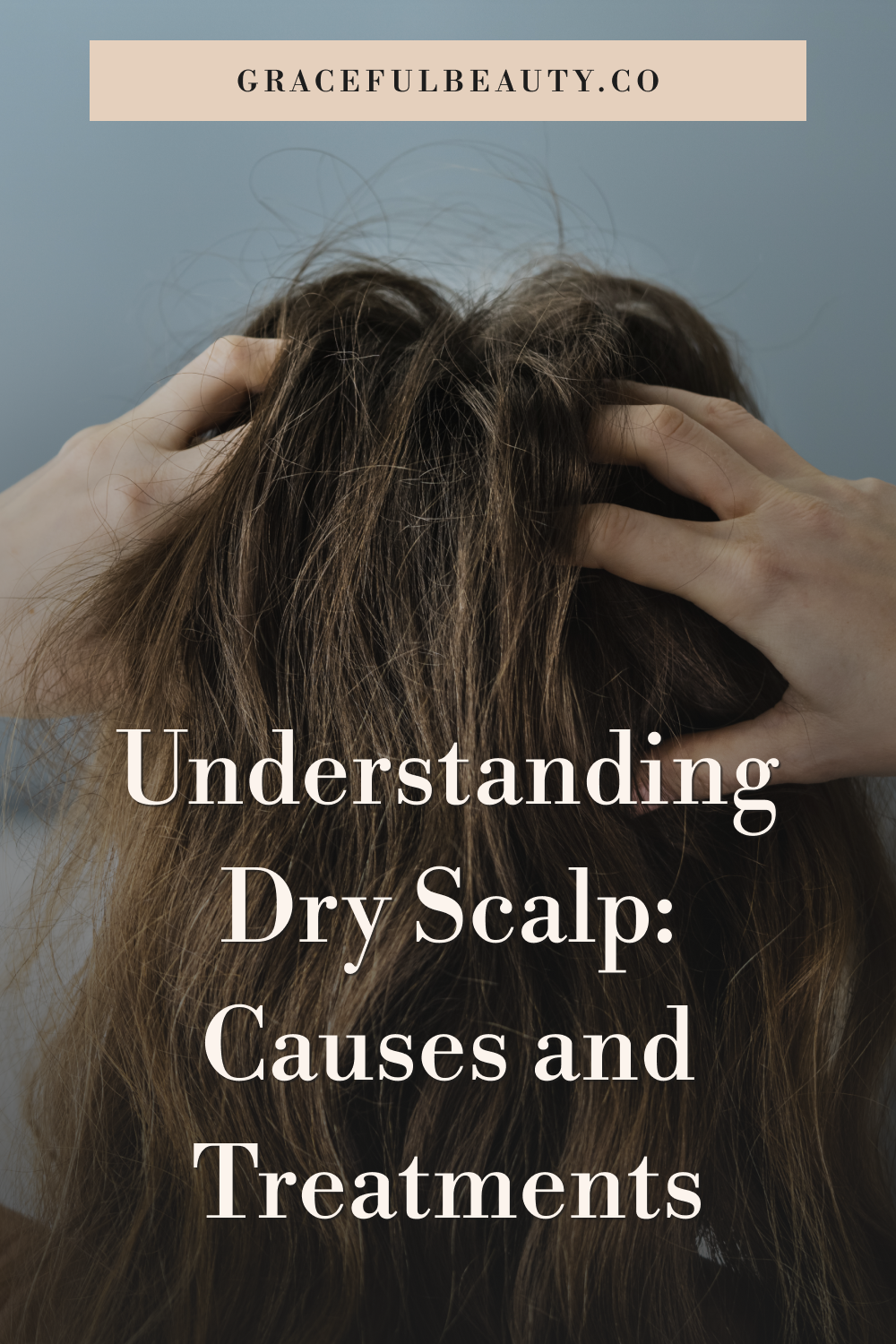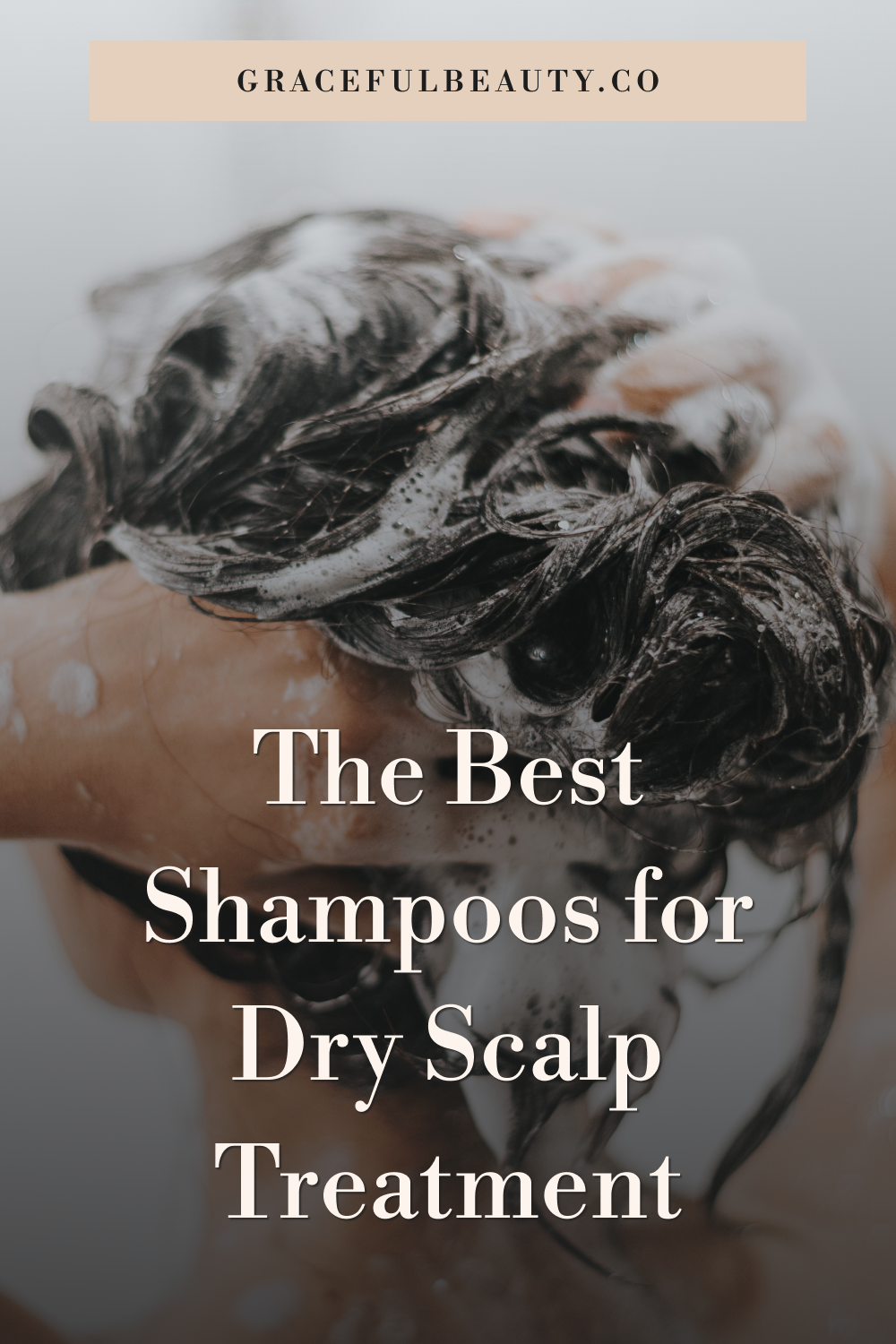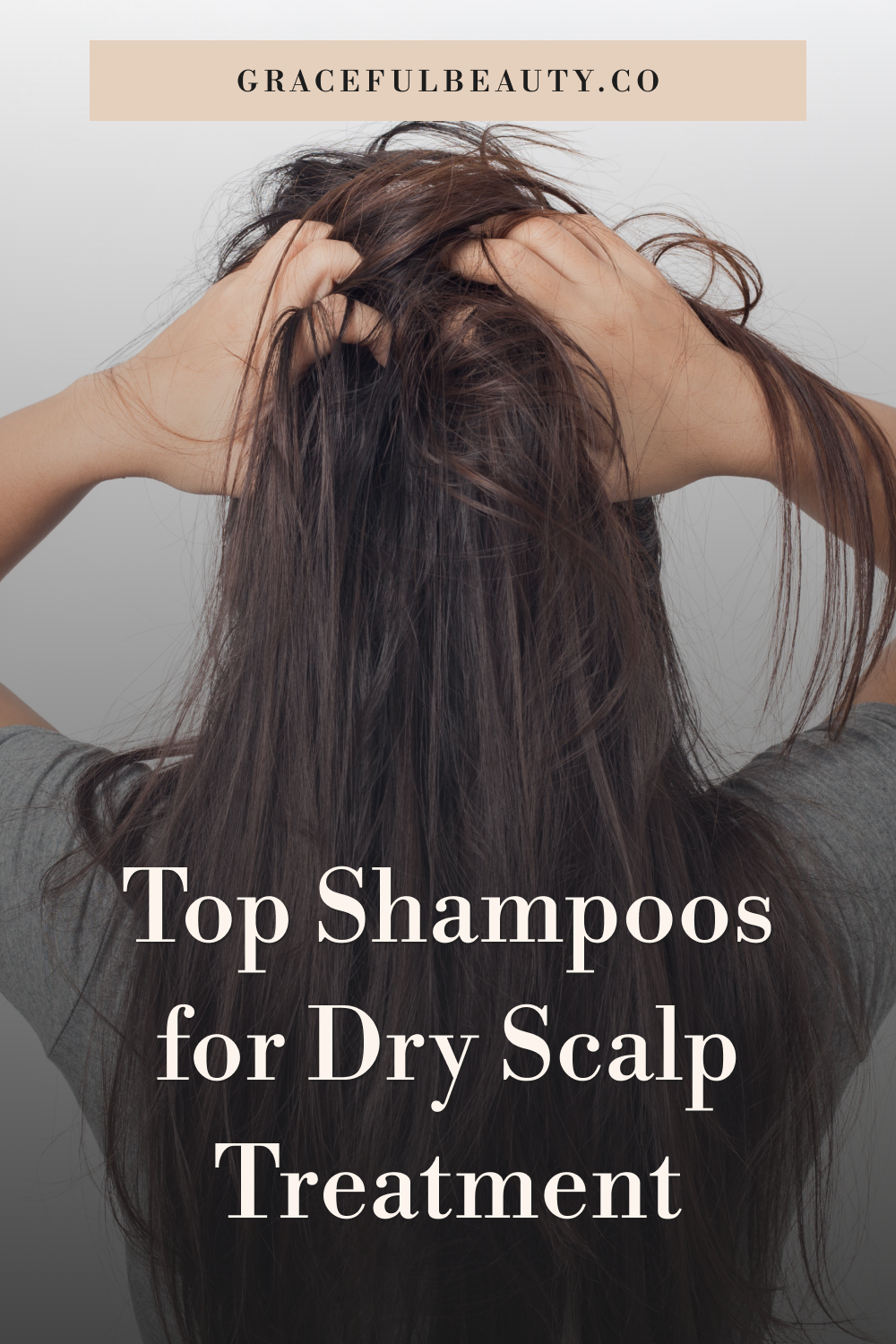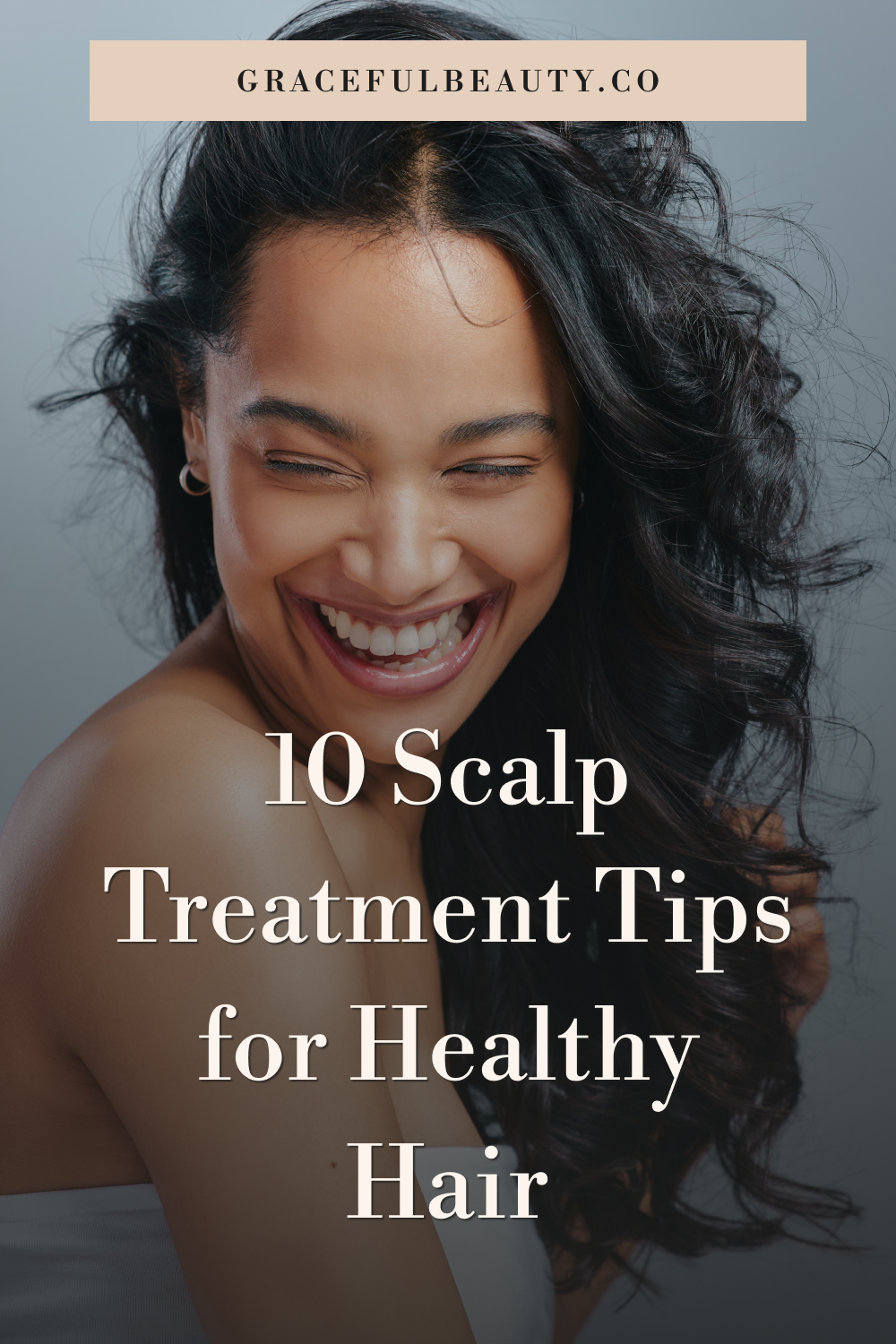
Dry scalp is a prevalent issue causing discomfort and impacting confidence among many individuals, often characterized by itching and flaking skin to dandruff. Understanding its causes and treatments is vital for long-term scalp health, whether due to infrequent shampooing, product sensitivity, or other factors. Delving into these causes and exploring effective remedies is essential, not just for aesthetics but also for comfort and well-being. This post will examine the causes, latest treatments, and insights to help manage dry scalp effectively, empowering readers to reclaim scalp health with confidence.
The Anatomy of Dry Scalp
Understanding the anatomy of dry scalp is crucial in distinguishing it from other scalp conditions such as dandruff. By examining its features and impact on daily life, individuals can better comprehend the effects of this common issue.
Differentiating Dry Scalp from Dandruff
Dry scalp and dandruff are distinct conditions with different causes, symptoms, and appearances. Dry scalp is a result of the skin on the head losing too much water or moisture, leading to itching and flaking. On the other hand, dandruff is often associated with seborrheic dermatitis and is caused by an excess of oil on the scalp, leading to the overgrowth of Malassezia yeast. Recognizing these differences is essential for accurate diagnosis and effective treatment.
Symptoms and Impact on Daily Life
The symptoms of dry scalp, including itching and flaking, can significantly impact an individual’s daily life. Beyond the physical discomfort, these symptoms can also lead to emotional distress and reduced confidence. It’s important to understand the extent to which dry scalp can affect overall well-being and seek appropriate treatment.
Remember, accurate diagnosis and understanding of the symptoms are pivotal in determining the most suitable scalp treatment for dry scalp.
Causes of Dry Scalp
Understanding the causes of dry scalp is essential in addressing and preventing this common condition. Various factors, including environmental influences, genetic predispositions, hormonal fluctuations, and lifestyle choices, can contribute to dry scalp.
Environmental Factors
The impact of environmental factors such as climate, air pollution, and seasonal changes can significantly affect scalp health. Dry air, cold weather, and exposure to pollutants can strip the scalp of its natural moisture, leading to dryness and irritation. In extreme cases, these factors can exacerbate existing symptoms of dry scalp, causing discomfort and visible flaking.
It is important to protect the scalp from environmental stressors by covering the head in cold weather, using a humidifier to maintain indoor moisture levels, and minimizing exposure to air pollutants whenever possible.
Genetic and Hormonal Influences
Genetics and hormonal imbalances play a crucial role in predisposing individuals to dry scalp. Certain genetic factors can influence the production of sebum, the skin’s natural oil, impacting the scalp’s ability to retain moisture. Additionally, hormonal fluctuations, such as those experienced during puberty, pregnancy, or menopause, can contribute to imbalances that affect the scalp’s condition.
Understanding these influences can help individuals take proactive measures to manage dry scalp symptoms and seek targeted treatments that address underlying genetic and hormonal factors.
Lifestyle and Hair Care Practices
Lifestyle choices and hair care routines can also impact scalp health. Overuse of hair products, infrequent washing, and dietary habits can lead to dryness and irritation of the scalp. It’s important to establish a scalp-friendly hair care regimen by choosing gentle, moisturizing hair products, incorporating regular scalp massages to promote blood circulation, and maintaining a balanced diet rich in essential nutrients that support overall scalp health.
By adopting scalp-friendly lifestyle practices and hair care habits, individuals can significantly reduce the risk of developing or exacerbating dry scalp concerns.
In the next section, we’ll delve into effective treatments for managing dry scalp, providing practical solutions for addressing this common concern.
Effective Treatments for Dry Scalp
Dry scalp can be a persistent and uncomfortable condition, often requiring a variety of treatments to alleviate symptoms. From traditional medical interventions to innovative new scalp care products, there are numerous options available to address this issue.
Medical Treatments and Professional Interventions
Dermatologist-recommended treatments, prescription medications, and clinical procedures offer effective solutions for severe dry scalp. Topical corticosteroids, medicated shampoos containing ketoconazole or coal tar, and phototherapy are often prescribed to combat persistent dryness and itchiness. While these interventions can provide significant relief, it’s crucial to be aware of potential side effects such as skin irritation, thinning, or discoloration.
Natural Remedies and Home-based Solutions
For those seeking natural alternatives, ingredients like coconut oil, aloe vera, and essential oils have shown promise in hydrating and nourishing the scalp. DIY recipes using these natural remedies can be easily incorporated into a regular hair care routine. For instance, massaging coconut oil into the scalp and leaving it on for a few hours before shampooing can help restore moisture and reduce flakiness. Additionally, rinsing with diluted apple cider vinegar has been found to rebalance the scalp’s pH levels, preventing dryness and itchiness.
Innovative Scalp Treatments for Dry Scalp
Recent advancements in scalp care have led to the development of innovative products specifically tailored to address dry scalp concerns. Hyaluronic acid-based treatments, molecular patches, and advanced moisturizers are designed to deeply hydrate and soothe the scalp, offering a more targeted approach to combating dryness. These innovative solutions are formulated to provide long-lasting relief while promoting overall scalp health, making them a promising option for individuals struggling with persistent dry scalp issues.
When exploring treatment options, it’s essential to assess individual preferences and the severity of the condition to determine the most suitable approach. From medical interventions to natural remedies and innovative scalp care products, a tailored treatment plan can help individuals effectively manage dry scalp and restore comfort and confidence.
Maintaining Scalp Health
Taking care of your scalp is essential for overall hair health and to address issues like dry scalp. Here are some tips to maintain a healthy scalp.
Scalp-friendly Hair Care Practices
Choosing the right hair care products is crucial in maintaining a healthy scalp. Avoid products with harsh irritants, as they can strip the scalp of its natural oils, leading to dryness and irritation. Look for scalp-friendly shampoos and conditioners that are gentle and free from sulfates, parabens, and other harsh chemicals. These products can help promote scalp health and prevent dryness. Regular scalp maintenance, including gentle cleansing and regular exfoliation, can also contribute to a healthier scalp.
Check out these related articles for more detailed guidance on maintaining a healthy scalp:
- 10 Tips For a Healthy Scalp – This article offers insights on avoiding products with harsh irritants to maintain a healthy scalp.
- 7 Healthy Scalp Tips for Strong, Shiny Hair – Find recommendations on washing frequency and gentle hair care products for a healthy scalp.
- How to Take Care of Your Scalp and Why It Matters – Learn about the importance of using gentle cleansers and sustaining the scalp’s microbiome for scalp health.
Nutritional Support and Hydration
Hydration and a balanced diet play a vital role in supporting scalp health. Drinking an adequate amount of water helps keep the scalp hydrated from within. Additionally, incorporating nutrients like Omega-3 fatty acids, vitamin E, and biotin into your diet can contribute to scalp hydration and overall well-being. These nutrients help in maintaining a moisture balance in the scalp and promoting healthy hair growth.
For more insights on promoting scalp health through nutrition and hydration, check out these resources:
- Your Ultimate Scalp Care Routine – Discover tips on achieving a healthy scalp, including the importance of exfoliation and gentle cleansing.
- The Ultimate Guide to Scalp Care for Healthy Hair Growth – Gain knowledge about maintaining moisture balance and promoting scalp health through regular washing and conditioning.
- 7 Healthy Scalp Tips for Strong, Shiny Hair – Explore ways to achieve a healthy scalp through dietary supplements and antioxidants.
By following these scalp-friendly hair care practices and incorporating nutritional support and hydration, you can effectively maintain scalp health and combat issues like dry scalp.
Remember, a healthy scalp is the foundation for luscious, vibrant hair.
Final Note
Understanding the causes and treatments for dry scalp is crucial for maintaining healthy hair and scalp. Effective treatments range from medicated shampoos to natural remedies like apple cider vinegar and coconut oil, tailored to individual needs. Preventive measures such as using gentle, moisturizing shampoos and managing stress levels can help, along with seeking professional advice for persistent cases. With proactive management, individuals can alleviate discomfort, promote scalp health, and prevent recurrence of dryness.


